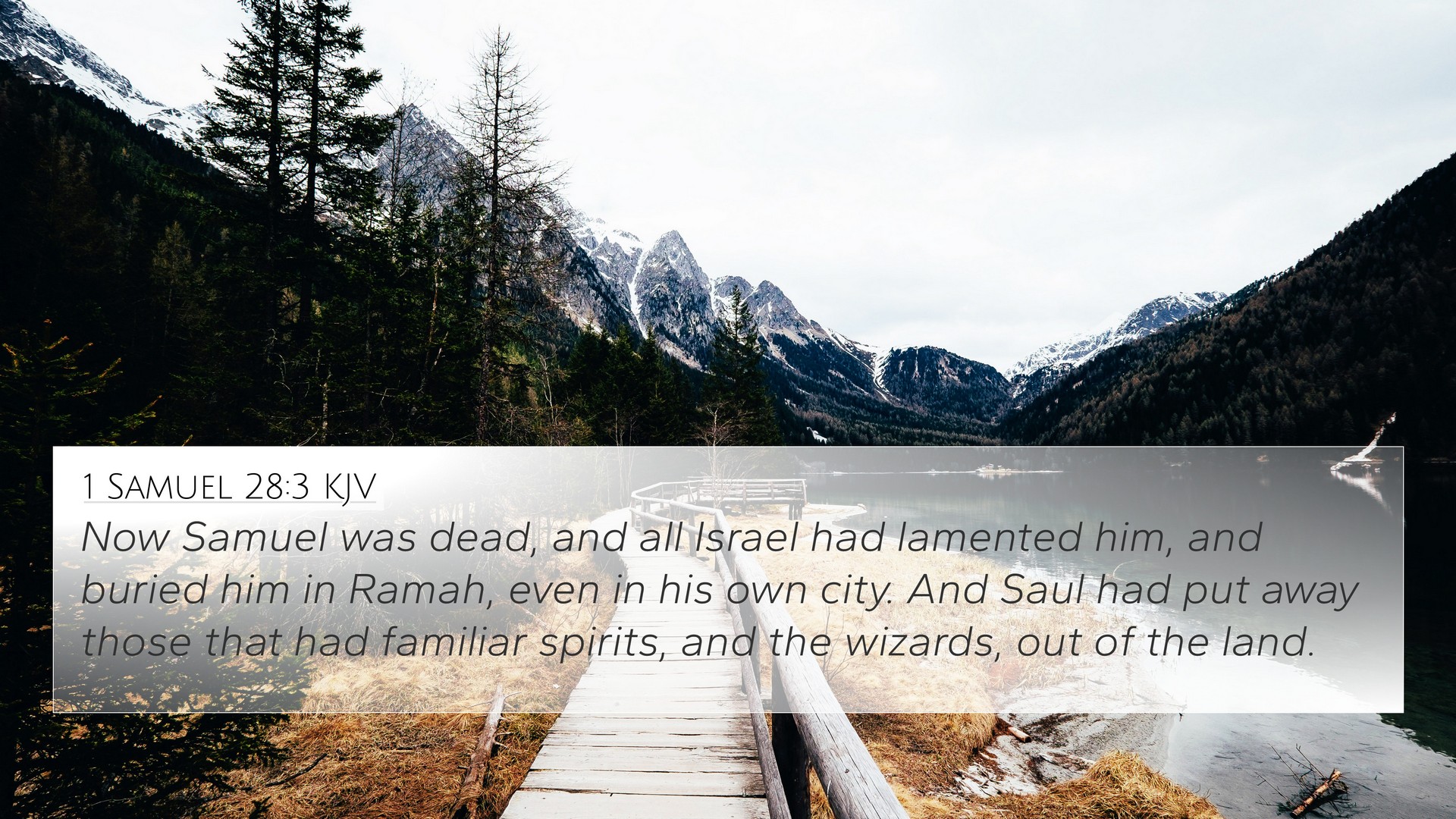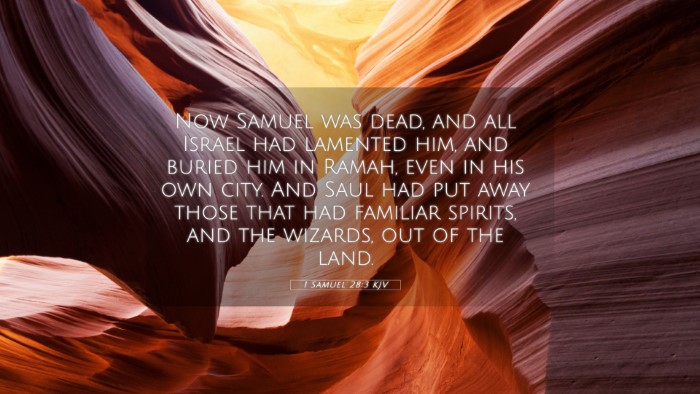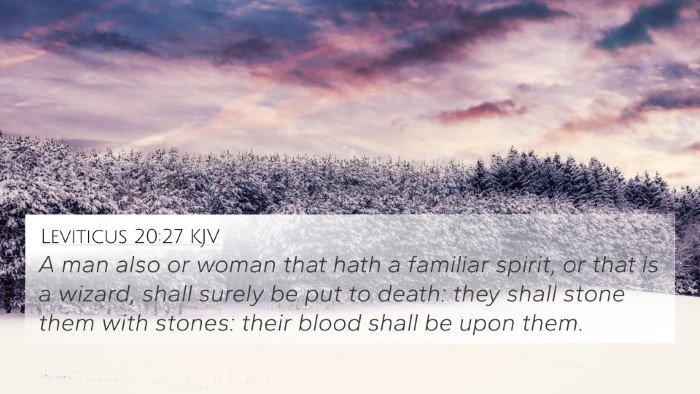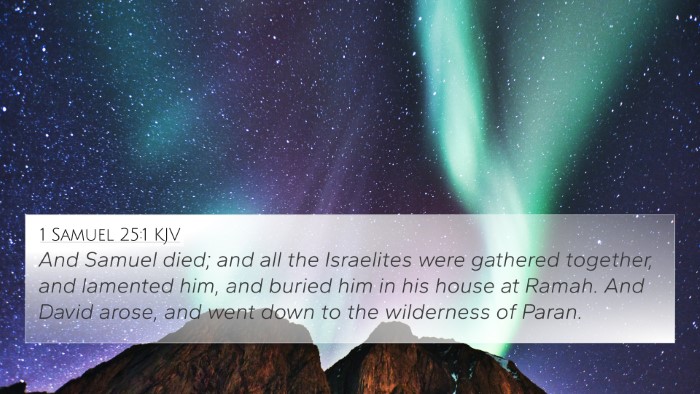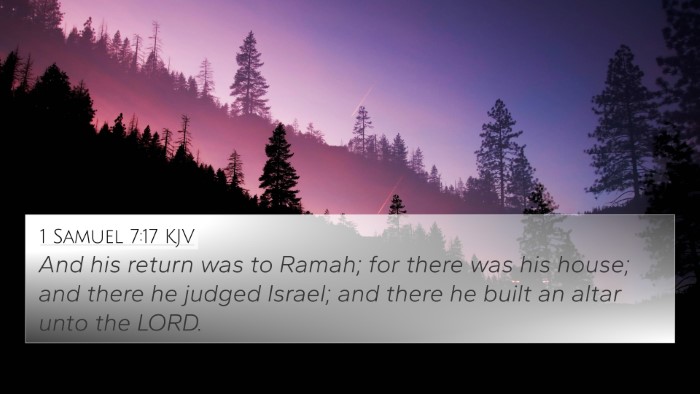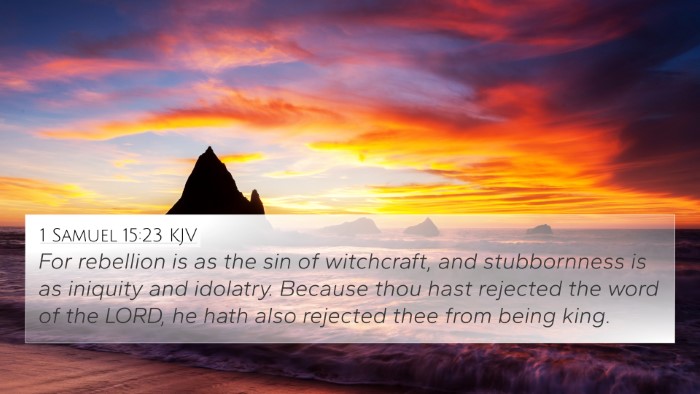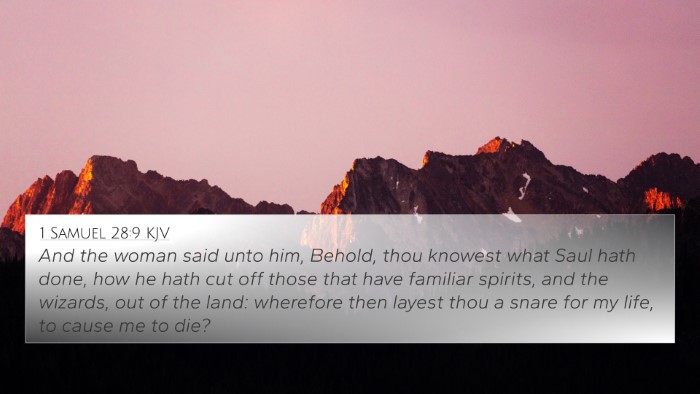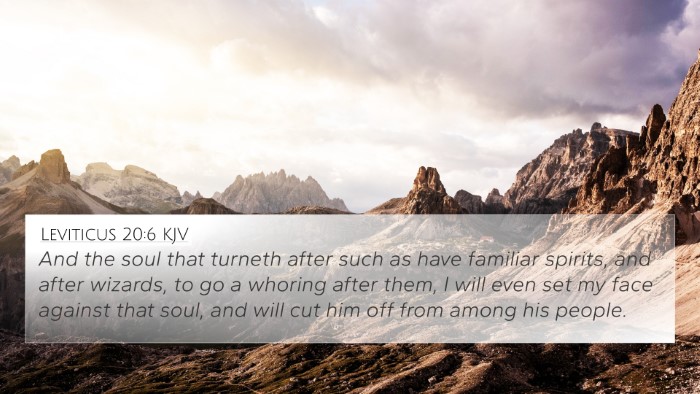Meaning and Interpretation of 1 Samuel 28:3
1 Samuel 28:3 is a significant verse that captures a pivotal moment in the life of King Saul. This verse reads: “Now Samuel was dead, and all Israel lamented him, and buried him in Ramah, even in his own city. And Saul had put away those that had familiar spirits, and the wizards, out of the land.” The verse sets the stage for understanding the desperate actions Saul would take in the absence of the prophet Samuel.
Overview of the Context
This passage occurs during a critical time of transition for Israel. With Samuel’s death, the nation faces uncertainty without its spiritual leader. In the context of Saul’s reign, the verse highlights themes of loss, despair, and the consequences of previous actions.
Matthew Henry's Commentary Insights
Matthew Henry suggests that Saul’s actions to banish necromancers and wizards reflect his initial adherence to the law of Moses, which prohibited such practices (Leviticus 19:31). However, Henry points out that Saul's inconsistency becomes evident in his later decisions, where he turns to a medium in desperation. He notes the contrast between Saul’s initial stance and his ultimate actions, which reflect a loss of faith and guidance.
Albert Barnes' Commentary Insights
In his analysis, Albert Barnes emphasizes the significance of Samuel’s death. He interprets this as a major turning point for Saul and the nation of Israel. Barnes connects this moment to the spiritual void left by the prophet, which contributes to Saul’s descent into despair. He also discusses the societal implications of removing those practicing familiar spirits, hinting at Saul’s attempt to restore order in Israel during chaotic times.
Adam Clarke's Commentary Insights
Adam Clarke provides a historical perspective, noting that Ramah, the burial site of Samuel, was a central location for Israel’s religious life. He elaborates on the sociopolitical condition of Israel after Samuel’s death, suggesting that the removal of wizards and spirits was more about Saul’s fear than a true commitment to righteousness. Clarke underscores the irony in Saul’s actions as he later seeks out a medium to contact Samuel, revealing the depth of his desperation.
Thematic Bible Verse Connections
- Leviticus 19:31: A command against mediums and familiar spirits.
- 1 Chronicles 10:13-14: Discusses the reasons for Saul’s demise, aligning with his disobedience to God.
- Galatians 5:20: References works of the flesh, including witchcraft, paralleling Saul’s actions.
- Isaiah 8:19: Explores the futility of seeking the dead for guidance.
- 1 Samuel 15:23: Connects rebellion as akin to witchcraft, highlighting Saul’s disobedience.
- Matthew 4:24: Talks about Jesus healing those possessed, contrasting with Saul's plight.
- Acts 16:16: Referencing a slave girl with a spirit of divination, illustrating the biblical stance on such practices.
Cross-Referencing Biblical Texts
1 Samuel 28:3 serves as a bridge to various scriptural themes and narratives. By examining passages that relate to Saul's actions, believers can gain a comprehensive understanding of the implications of seeking guidance outside of God's will.
Conclusion
The study of 1 Samuel 28:3 reveals critical insights into the life choices of Saul and the broader implications for Israel. Through the commentaries of Matthew Henry, Albert Barnes, and Adam Clarke, we see an evolution of thought that emphasizes both the historical context and the moral lessons found in Scripture. By utilizing tools for Bible cross-referencing, readers can deepen their understanding of the intricate connections between various biblical texts.
Further Study Recommendations
For those interested in exploring the themes of this passage further, the following approaches are recommended:
- Utilize a Bible Concordance: To find related verses that expand on the themes of obedience, spiritual warfare, and divine guidance.
- Implement Cross-Reference Bible Study Methods: Compare the narratives of Saul with those of other biblical figures facing spiritual crises.
- Explore Comprehensive Bible Cross-Reference Materials: Engage in thematic studies that connect the Old and New Testaments.
